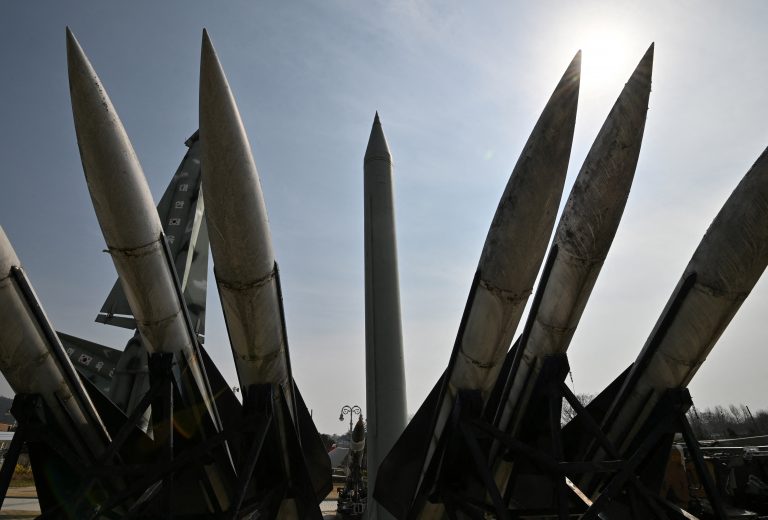On Wednesday Sept. 15 North Korea launched two ballistic missiles into the waters off its eastern coast. A few hours later, South Korea announced that it had successfully test-fired a submarine-launched ballistic missile. The two test-fires are being interpreted as an arms race that is quickly escalating between the two Korea’s.
North Korea’s tests of the ballistic missiles were in violation of multiple UN Security Council Resolutions unlike its successful tests of its new long-range cruise missiles that were conducted on the weekend of Sept. 11th and 12th.
North Korean state-run news outlets said on Monday that the cruise missile launches would provide the country with another effective means of deterrence in the face of “ the military maneuvers of the hostile forces.”
Ballistic missiles are considered to pose a deeper threat as they are significantly larger and have the ability to deliver bigger payloads, including nuclear warheads, and have much longer ranges than other types of missiles. The North Korean ballistic missiles are suspected of being able to travel upwards of 13,000 kilometers (8077 miles) placing much of Europe and the United States mainland within reach.
North Korea’s test on Wednesday was the first ballistic missile test Pyongyang has conducted since last March.
Success
You are now signed up for our newsletter
Success
Check your email to complete sign up
South Korea announced that its test of an indigenous submarine-launched ballistic missile (SLBM) flew a planned distance and precisely hit its target. The successful test makes South Korea only the seventh country, and only non-nuclear power, in the world to possess such a capability.
The North Korean tests occurred just weeks after a nine-day joint military exercise was conducted by South Korea with its ally the United States.
Nuclear disarmament negotiations between the United States and North Korea have stalled since a summit between North Korean leader Kim Jong-Un and former U.S. President Donald Trump collapsed in 2019.
Trump rejected a deal by the North Korean dictator stating that Kim Jong-Un was not offering enough of a concession in return for removing sanctions.
Pyongyang has to date refused the Biden administration’s appeals to return to the negotiating table.

















